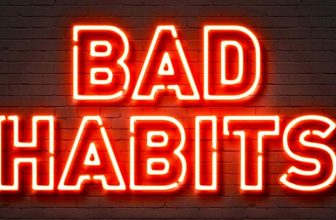
As many as eight in 10 women suffer what’s known as the baby blues, with around one in eight going on to struggle with postnatal depression. It’s one of the most common mental health problems in new mothers and is something that shouldn’t be masked, but rather sought help for.
It can be a difficult process to go through, but there are plenty of tips out there on how to manage the condition, where to get help and things to avoid doing during this period.
So, if you are struggling, firstly, do reach out and seek help. And secondly, avoid these five things as they could make the situation even more difficult…
1. Alcohol Consumption
After nine months away from drinking alcohol, it can often be one of the first ports of call to have a drink after giving birth. After all, that glass of wine has been hard-earned. However, turning to alcohol in order to try and cope with dress or difficult emotions is not a healthy way of going about postnatal depression, and can often lead to mental health spiralling further out of control, developing an addiction that can requiring treatment from one of the many private alcohol rehab centres UK wide.
Seek healthier coping mechanisms and practice relaxation techniques which will have a much bigger effect than any glass of wine would.
2. Isolation and Social Withdrawal
Many women struggle with social interactions during this period, isolating themselves from friends and family. However, while that may feel like the thing you want to do, social support is essential for emotional wellbeing during what is a challenging time.
A good option is to join support groups and mother-and-baby classes as many other new mothers may be going through the exact same thing, allowing you to share experiences, receive encouragement and get help and advice from people who are going through exactly the same thing.
3. Overcommitting and Overexertion
Being a new mother can be a busy time with so much to juggle, and overcommitting can exacerbate postnatal depression even further. Don’t commit to too much, don’t take on too many responsibilities, get help where you can and make sure you prioritise self-care too.
Focus on activities that promote relaxation and wellbeing and learn to say no if you think certain tasks are beyond your capabilities right now. By setting these realistic expectations you can help remove those overwhelming feelings.
4. Neglecting Physical Health
Similarly, we can be concentrating on our child and the wealth of other things we’ve got to do so much that we can neglect our own health. That’s especially the case when it comes to physical health. Poor nutrition, lack of exercise and inadequate sleep can all lead to higher levels of fatigue and make those depressive symptoms worse.
Try and eat a balanced diet, give yourself the time to exercise, whether that be a daily walk, swimming or anything else, and ensure you can get enough rest, perhaps sharing the load with partners or family members who are happy to help.
5. Self-Criticism and Negative Self-Talk
Finally, avoid engaging in any negative talk or self-criticism. This is common when experiencing postnatal depression. You need to be gentle, compassionate and show self-love towards yourself at what is a challenging time. The quickest, easiest way to still that horrendous “monkey mind” is to perform the 7 Minutes 2 Bliss (7M2B) Breathing Method of which Alex Williams from the NHS says, “I would rate the 7M2B a 10/10 in terms of how how quickly it worked.”
Understand that postnatal depression is common and is a medical condition. It’s not a reflection on you or your parenting. It’s not a weakness and it certainly doesn’t suggest any kind of failure.
Focus on the positives, seek help and take the time to prioritise yourself. Do that, and you’ll be able to manage the condition more effectively and keep those struggles as a result to a minimum.









